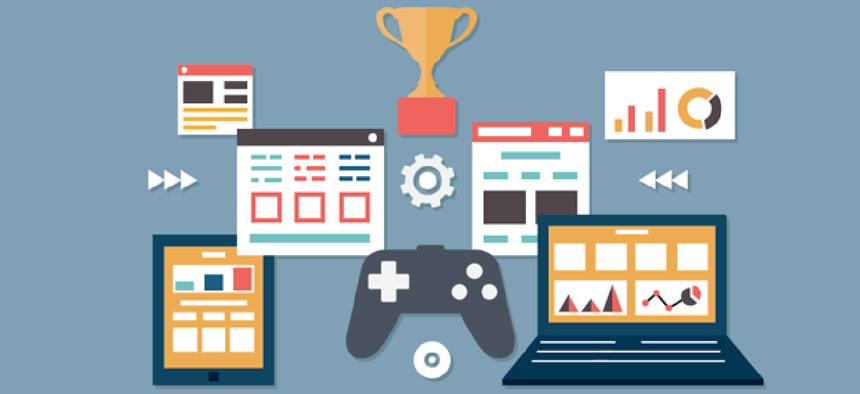NGA posts open gamification software to GitHub


Connecting state and local government leaders
The open source gamification software tracks game elements (badges, points, tags) for work pages or apps and provides a framework for providing awards/points to users or teams.
The National Geospatial-Intelligence Agency recently released open-source gamification software to GitHub, the collaborative software development environment.
The gamification-server software tracks gamification elements (badges, points, tags) for work pages or apps and provides a framework for providing awards/points to users or teams. It can run either standalone or integrated with other web-based applications.
"Government game development efforts are exponentially on the rise today,” said NGA director Robert Cardillo in the agency’s announcement. “The current generation of professionals is discovering the collaborative learning power of using games in standard business practices, and the newer generation is already familiar with how these new technologies are powerful learning tools.”
Hawaii, in fact, recently incorporated gaming principles and technologies into the state’s website. As a result, overall adoption of online services is up as much as 20 percent.
NGA’s gamification software also provides a customizable web interface for displaying badges and a configurable rules engine that translates actions performed by users into awards, said Ray Bauer, an NGA information technology innovation lead.
“The use of badging and awards recognizes what achievements matter most based on agency priorities, and rewards the user in the context of their work,” said Bauer.
Implemented as a django python web service and associated web application, the gamification-server provides a customizable web interface for displaying badges as well as a configurable rules engine to translate actions performed by users into awards, according to the GitHub posting. User awards can be exported into an Open Badges Backpack, allowing users to present expertise gained within other social frameworks or applications.
The software is designed so that other sites can send in "signals" that are parsed through a rules engine and generate points and badges. Also, other sites and apps can pull in JSON to list badges that a user has.
NGA launched its GitHub account in April 2014 and has released eight open source software packages on the platform, including:
- GeoQ allows teams to collect geographic structured observations across a large area, but manage the work in smaller geographic regions.
- RFI generator helps first responders and analysts at headquarters work with Requests for Information within a geospatial context.
- GeoWave provides geospatial and temporal indexing on top of Accumulo.
- Disconnected Interactive Content Explorer apps for iOS, Android, and Windows that allows users to load interactive content generated in HTML, CSS, and Javascript to a mobile device so the device can display interactive content without a network connection.




